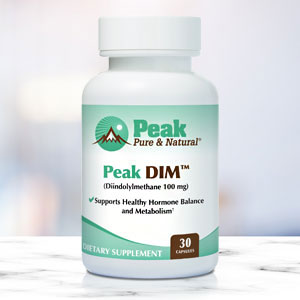Get Easy Health Digest™ in your inbox and don’t miss a thing when you subscribe today. Plus, get the free bonus report, Mother Nature’s Tips, Tricks and Remedies for Cholesterol, Blood Pressure & Blood Sugar as my way of saying welcome to the community!
Twins help reveal powerful reason diet links to depression

Depression can be a tough nut to crack. Doctors usually prescribe an antidepressant, but it doesn’t work in 2 out of 3 people. So they try another, and in 30 percent of cases that one doesn’t work, either.
Even if the antidepressant does provide relief, it often comes with its own set of problems: nausea, weight gain, fatigue, constipation, irritability, anxiety and low sex drive.
So what can you do? With a little effort, depression can be managed naturally. And as with many conditions, it all starts with what you’re eating…
Foods with a major impact on depression
Previous studies have shown that following healthy eating plans like the heart-healthy DASH diet can help reduce the odds of developing depression. Now, a new and particularly strong study sheds light on why that may be true…
The study, led by the University of New South Wales (UNSW) Sydney’s Centre for Healthy Brain Ageing (CHeBA), involved 3,483 twins ages 45 and up from Australia, Denmark, Sweden and the U.S.
Twins, according to the MSU Twin Registry, are a valuable source for health and psychological research because their unique relationship allows researchers to pull apart and examine genetic and environmental influences.
The twins’ fruit and vegetable intake was followed for over 11 years — and low intake of fruit was measured as 0.3 servings on average per day, and low intake of vegetables was measured as 0.5 servings per day. By contrast, 2.1 servings a day was considered high fruit intake and 2.0 servings a day was considered high vegetable intake.
The study results found that higher intakes of both fruit and vegetables were linked with lower symptoms of depression over time.
Interestingly, the high category still fell well below the dietary recommendations of most countries. In one example, the American Heart Association recommends four to five servings each of fruits and vegetables each day.
“We found that fruit and vegetable consumption in the two large Scandinavian studies were particularly low, with the average for both being less than half the World Health Organization recommended intake of at least five serves per day,” says lead author and postdoctoral fellow Dr. Annabel Matison.
“We are unclear what the reduction in depression scores would be if intakes were increased to recommended levels,” Matison adds.
Powerful nutrients are key
The researchers believe the beneficial relationship between fruits and vegetables and depression is most likely the result of higher levels of dietary fiber, vitamins and micronutrients — namely antioxidants.
That’s because those with major depression show lower levels of antioxidant markers when compared with healthy people.
Berries top the list of antioxidant-rich fruits. One landmark study showed just one cup of berries provided an entire day’s worth of disease-fighting antioxidants.
And dark, leafy greens and citrus fruits contain plenty of folate (vitamin B9), which plays an important role in the synthesis of serotonin and other neurotransmitters involved in mood regulation.
Consumption of fiber-rich fruits and vegetables also positively impact the gut-brain axis…
“The importance of the gut microbiome and its potential influence on depression as a result of inflammation, both systemic and neuroinflammation, is becoming increasingly well understood,” Matison says.
Getting the recommended daily amount of fruits and vegetables — four to five servings — may sound like a lot, but it’s easy to spread that across each meal.
You don’t have to rely solely on fresh produce, even though a daily salad is a great habit. Frozen produce is typically minimally processed (picked, cleaned, cut and frozen), making it a healthy choice.
Of course, a cup of berries could satisfy your fruit requirement. But it’s also good to mix it up and follow the “eat the rainbow” rule.
Editor’s note: Did you know that when you take your body from acid to alkaline you can boost your energy, lose weight, soothe digestion, avoid illness and achieve wellness? Click here to discover The Alkaline Secret to Ultimate Vitality and revive your life today!
Sources:
Link between low fruit and vegetable intake and depression shown in twin studies — Scimex
Longitudinal associations between fruit and vegetable intakes and depressive symptoms in middle-aged and older adults from four international twin cohorts — Scientific Reports
Treatment‐resistant depression: definition, prevalence, detection, management, and investigational interventions — World Psychiatry
When the first antidepressant doesn’t work: What’s next? — Vital Record
What Are Recommended Servings of Fruits and Vegetables? — Scripps
Fruits and Vegetables Serving Sizes Infographic — American Heart Association














